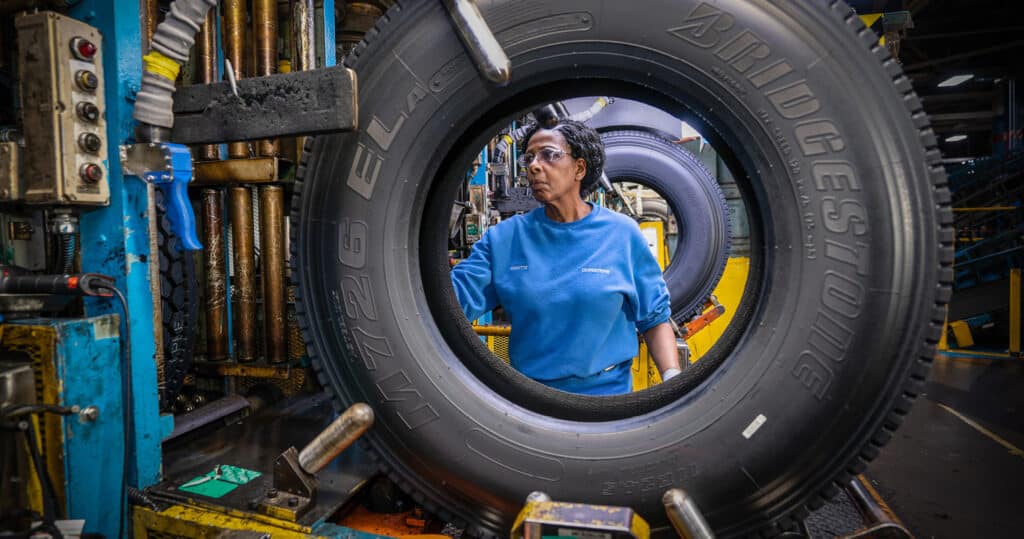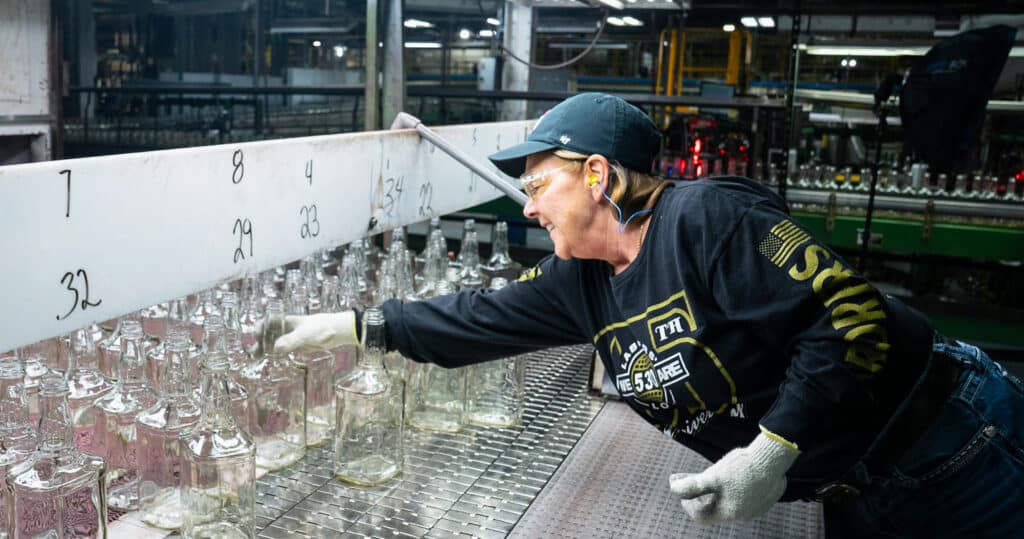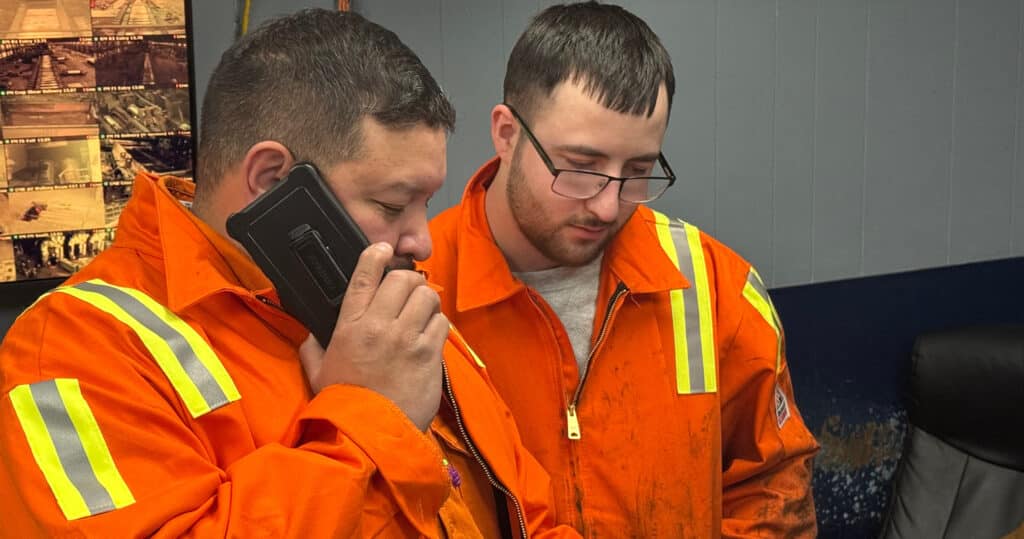‘A Broken System’: Struggles of Tire, Glass Workers Highlight Need for Major Reform

USW members have fought for decades to ensure a level playing field in the global marketplace, but they continue to face an uphill battle in the fight for justice from the nation’s broken trade enforcement system.
The recent struggles of workers in the tire and glass industries shed new light on the need for comprehensive reform from leaders in Washington, D.C.
“USW members take immense pride in making the best products in the world,” said International President David McCall. “But unfair imports, in many cases underwritten by Chinese investments, put jobs, families and communities at risk.”
Workers Suffer
In recent years, employers across the glass industry have curtailed production at an alarming rate, in large part due to unfair trade. In the tire industry, just in the past six months, companies announced plans to close plants, consolidate operations and scale down production in the face of a deluge of imports.
In November, Sumitomo announced that it would shutter its tire plant in Tonawanda, N.Y., just three years after the company said it planned to invest more than $120 million to upgrade the factory and grow the work force of more than 1,500.
In January, Bridgestone announced plans to close its LaVergne, Tenn., facility with a work force of 700, and also to eliminate 130 positions at its plant in Des Moines, Iowa.
In February, Goodyear said it was planning to cut nearly half of its work force of 1,800 at its plant in Danville, Va.

Outdated System
Modernizing and accelerating the nation’s trade enforcement system is a necessity, or workers at other factories and in other industries could see a similar fate, said Kevin Johnsen, chair of the USW’s Rubber and Plastics Industry Conference.
“The USW represents the most highly skilled tire and rubber workers in the world, and our products are second to none,” Johnsen said. “The problem is not with the workers, the products, or our factories, but with the dumping and subsidization of foreign products in our market, and the outdated and slow-moving process to address those issues.”
Since joining the World Trade Organization in 2001, the Chinese government has consistently subsidized and dumped foreign-made products in the U.S. market. Often, producers funnel goods through other nations, such as Cambodia, Indonesia, Malaysia and Thailand, to bypass U.S. duties.
Under current rules, manufacturers and organizations like the USW can petition the U.S. Department of Commerce (DOC) to seek investigations when they believe a foreign company is illegally dumping products (selling them at below the cost of production), or that a foreign government is unfairly subsidizing exports.
While the DOC determines whether dumping or subsidies exist, the U.S. International Trade Commission (ITC) investigates to determine whether the imports are causing harm to U.S. manufacturers and workers.
Both agencies must reach affirmative determinations in order for duties to be placed on imports, and the process can take months and, in some cases, more than a year, before workers see any relief. By then, remedies often are too little, too late.
Flood of Imports
In 2023, Jon Wright of Local 1055L at Bridgestone’s factory in LaVergne, joined his fellow USW members in testifying before the ITC about the harm unfair tire imports were causing workers. At the time, Wright said, his factory had curtailed production to two-thirds of its capability.
“This sharp decline has nothing to do with overall demand or a slump in the economy,” Wright said. “Demand for truck and bus tires is not the problem — it is the flood of imports from Thailand.”
Those imports, members said, were fueled by investments from China, and were dumped in the U.S. specifically to undercut American producers and steal market share, an effort that was working exactly as the Chinese government wanted.
While the ITC and Commerce Department ultimately agreed and imposed duties on those imports, those investigations and final decisions took nearly a year, too late to make a difference for workers in LaVergne, Danville, Tonawanda and elsewhere.
The 2023 case was one of more than a dozen tire trade cases in which the USW has taken part. And, while most of those petitions have been successful, damage must already be done before regulators can provide relief. That damage usually comes in the form of job losses that can devastate families and communities.

Bill on the Table
“It is a broken system,” said Johnsen, a longtime rubber worker who joined the union in 1990 as a member of Local 915L in Huntsville, Ala. “It is a system that requires workers to feel significant pain before any relief can come. It is inherently unfair to workers.”
Lawmakers from both sides of the aisle introduced legislation in Congress that would update that process and ensure a fair shake for American workers. The bill – the Leveling the Playing Field 2.0 Act – would speed up trade remedies, specifically going after the predatory practices of the Chinese government, targeting serial cheaters and repeat offenders. In addition, the bill would take aim at practices like currency manipulation and “country hopping,” in which products are shipped through third-party nations to avoid duties.
“For too long, foreign competitors like China have engaged in unfair trade practices that have undermined domestic industry,” said Sen. Tina Smith of Minnesota, one of the sponsors of the bill.
The legislation would do more than simply modernize an outdated and too-slow system. It would boost the entire U.S. economy, and would protect national security by ensuring that American workers can meet the nation’s needs for essential goods, said International Vice President Roxanne Brown, who oversees the union’s legislative and policy work.
“Our broken trade system affects workers across all industries – from tire and rubber to mining and metals, glass, paper, auto parts and countless other products,” Brown said. “It affects us all, because every job lost to trade cheaters causes a ripple effect that hurts working families all across the country.”
Ensuring a level playing field would provide workers with a sense of security and give employers the confidence to hire new workers, said Drew Rodriguez of Local 1155L at Bridgestone’s Morrison, Tenn., factory.
“Ramping up production would help us add positions and hire new employees,” Rodriguez said. “It would give more members of our local community what we have been so fortunate to have – high-skilled, high-wage union jobs with good benefits.”
Help Level the Playing Field
There is a bipartisan bill in the U.S. House and the U.S. Senate – the Leveling the Playing Field 2.0 Act – that would modernize the nation’s broken trade enforcement system, preserving good jobs and boosting the economy. USW members can contact their representatives in the House and Senate and urge them to support the bill by visiting www.usa.gov/elected-officials.

By clicking Sign Up you're confirming that you agree with our Terms and Conditions.
Recent News Articles
Want to Learn More?
See how the USW is making a real difference in our communities and our workplaces.